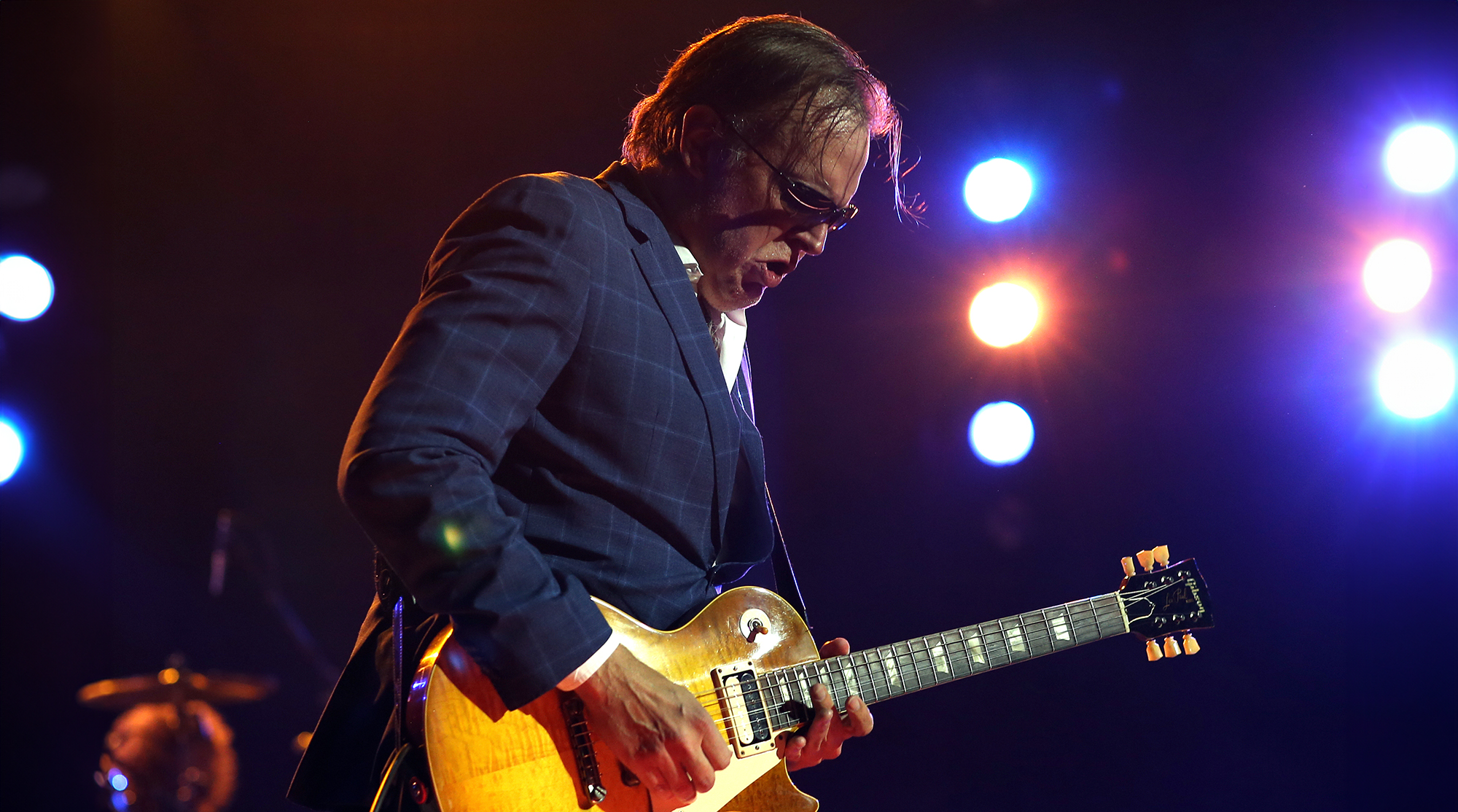
AI hoaxes are growing more daring as scammers use the new technology to fool fans with fake photos, videos and audio files of celebrities.
Guitarists may recall when last February someone created a bogus website for Wylde AudioZakk Wylde’s gear brand, where readers could check out the “new” Blood Skull Berzerker electric guitar and other axes. It didn’t take a particularly close look to realize the guitars had implausible shapes and designs, or that the numerous Marshall amps populating the photos had misplaced logos and other anomalies.
Now, unfortunately, it’s Joe Bonamassa’s turn. As the blues guitar king revealed on his Instagram on June 1, he’s become the victim of a deepfake video that purports to show him creating a video on his phone for a female fan.
In fact, the video is taken from a clip Bonamassa posted in 2021 while he was performing in Bay City, Michigan. The doctored clip uses an AI-generated voice modeled on his own, although it sounds stilted and stiff, as if he’s tense and reading off a script.
The AI-generated video depicts the guitarist telling “Lizzie” he wants “to speak from my soul…to open the door to the heart that’s been aching to be seen by you.” He goes on to tell her an inspiring story about a gig he played early in his career in Buffalo, New York, before he found fame, and ends by declaring, “Lizzie, I love you so damn much.”
Bonamassa posted the video on Instagram with a message clarifying it is indeed a fake.
“This is so fucked up,” he wrote, “AI generated, designed to mislead and scam people. Please be aware.
“Thank you to my friend Jimmy Vivino @jimmyvmusic for alerting me. His friend reached out and sent him this.
“2025 is a scary time my friends.”
Bonamassa — who will release his latest album, Breakthroughon July 18 — also posted the original video from 2021.
Alex Skolnick may have summed the sad state of affairs best in his response to the deepfake video: “And the way Silicon Valley overlords have behaved lately, why should we worry?? (Yikes)”
While AI-generated videos on YouTube of groups like the Beatles are easy to spot — and the posters usually give the game away in the video’s title or description — deepfakes like the Bonamassa clip demonstrate the potential for confusing and even scamming fans with doctored videos.
It adds up to one more AI-generated headache for musicians, many of whom have spoken out against the use of their music for AI training. Last March, Brian May joined other musicians blasting a new U.K. law that will make it easier for AI to use artists’ music. He had been among the earliest musicians to voice his concerns about the technology, telling Guitar Player with eerie accuracy in 2023, “I think by this time next year the landscape will be completely different. We won’t know which way is up. We won’t know what’s been created by AI and what’s been created by humans.
“Everything is going to get very blurred and very confusing, and I think we might look back on 2023 as the last year when humans really dominated the music scene. I really think it could be that serious, and that doesn’t fill me with joy. It makes me feel apprehensive, and I’m preparing to feel sad about this.”
Meanwhile, in the U.S., Paul McCartney recently added his name to a letter signed by 400 artists standing up to proposed changes to U.S. copyright laws that will benefit artificial intelligence firms over creative talents.
Not all musicians seem to be taking the AI threat seriously. In March, Pete Townshend jokingly threatened to use the technology himself to create new songs in the Who’s classic style for fans who keep asking him to play his old hits at his solo shows.
Earlier still, in November 2024, Elvis Costello declared he wasn’t worried about being cheated by AI, as “nobody wants to be me anyway, so I don’t see them conceiving of an algorithm that’s specifically trying to track me down.
“I live in a different universe to AI,” he said. “So they can get on with that whole fantasy — get on your rocket ship and don’t fucking come back!”
GIPHY App Key not set. Please check settings